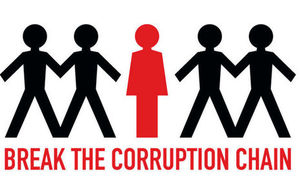International Anti-Corruption Day: UK working with Uganda
DFID projects help strengthen Ugandan efforts to tackle corruption and increase accountability.

9 December marks International Anti-Corruption Day. The British High Commission in Kampala is committed to helping tackle the problem of corruption in Uganda, and works through a number of programmes and initiatives to achieve this objective:
The Accountability Working Group
DFID Uganda chairs the development partners’ Accountability Working Group. The AWG is a coordination structure for development partners to engage on accountability and anti-corruption issues and discuss technical reforms. Following the 2012 corruption scandal within the Ugandan Office of the Prime Minister (OPM), engagement between AWG and the Ugandan government culminated in the development of the High Level Action Matrix, which indicates actions and key results achieved by the Ugandan government in addressing financial impropriety. Since then, the AWG, led by DFID, has spearheaded the development of a new joint approach on tackling corruption, which has been adopted by all anti-corruption institutions and AWG members.
Strengthening Uganda’s Anti-Corruption Regime (SUGAR)
This major DFID-funded project represents a new approach, moving away from “single institution action” model towards strongly co-ordinated teamwork involving a range of agencies, through a new programme to strengthen Uganda’s anti-corruption regime to support increased accountability in the country. The programme focuses on both support to anti-corruption and accountability Institutions and support to local government accountability, which is a partnership with USAID under its Governance, Accountability, Participation and Performance Programme (GAPP), to create a harmonised approach on support to local government accountability. The project will provide technical assistance, facilitation and training to national accountability institutions and local government, and grants to civil society. The project will monitor the work of local government in the 35 districts of Uganda. DFID support to SUGAR is £30m (2014 – 2019).
Financial Management and Accountability Programme (FINMAP)
FINMAP is the Ugandan government’s Public Financial Management (PFM) reform programme. It oversees the implementation of the Ugandan government’s public financial management reform plan. All Ugandan Ministries, Departments and Agencies now use budget templates linked to work-plans, procurement plans, recruitment needs and cash needs projections. The improvement in the number of clean audits over recent years has been one of FINMAP’s key achievements. The percentage of central government clean audits shown in the latest available Auditor General’s report (2012/13) was 45%, and 32% for local government. Support to FINMAP has also included engagement on technical reforms, which contributed to the passing of the Public Finance Act (November 2014), containing provisions on oil revenue management and ensuring improved compliance. DFID’s contribution to FINMAP is £9,350,000.
Democratic Governance Facility (Voice and Accountability Component)
DFID is one of eight donors providing funds to a basket fund called the Democratic Governance Facility (DGF). The objective of the Voice and Accountability component is “Strengthened accountability and transparency of service providers at state and local government level”. This is about strengthening the “demand side” - how citizens articulate their needs and concerns and subsequently hold the state to account. DFID’s contribution to the Voice and Accountability component is £ 8,075,000.
It is obviously very important that this goes on the website today, as it is specific to International Anti-Corruption Day.